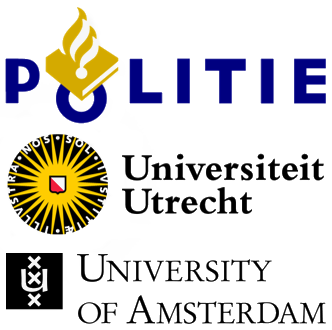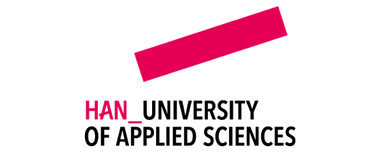Industrial partners
We believe we need new answers to global challenges. These challenges transcend borders and defy boundaries. Solving them requires complex technological innovations that no party can develop in isolation. That is why we innovate in the field of AI together with a number of leading companies.
ICAI research labs
TU Delft is part of the Dutch National Innovation Center for AI (ICAI), which works to keep the Netherlands at the forefront of knowledge and talent development in AI. Currently, we are involved in nine research labs, multi-year strategic collaborations with a focus on technology and talent development.
 |
AIRLab (AI for Retail), with AholdDelhaizeThe AI for Retail (AIR) Lab Delft is a joint TU Delft-Ahold Delhaize industry lab consisting of a robotics research program and test site focused on developing state-of-the-art innovations in the retail industry. By expanding its focus to robotics, AIRLab Delft will further drive innovations for daily business while building more knowledge of the intersection between retail, AI and robotics. The expansion comprises a robotics research program and test site for developing state-of-the-art innovations in the retail industry. |
 |
AFR (AI for FinTech Research), with INGAI for Fintech Research (AFR) is a collaboration between ING and TU Delft. The mission of AFR is to perform world-class research at the intersection of Artificial Intelligence, Data Analytics, and Software Analytics in the context of FinTech. Over the next five years, ten PhD researchers will work in the lab on projects that will focus, among other things, on autonomous software engineering, data integration, analytics delivery, and continuous experimentation. |
 |
AI4B.io Lab (AI for Biosciences Lab), with DSMAI for Biosciences Lab (AI4B.io Lab) is a collaboration between TU Delft and DSM. The lab focuses on improving production technologies and developing bio-based products using AI. AI4B.io Lab is the first of its kind in Europe to apply artificial intelligence to full-scale biomanufacturing, from microbial strain development to process optimisation and scheduling. AI4B.io Lab is aimed at long-term innovation in the domain of AI for developing biobased products and optimising biobased production technologies. It targets to develop a deep understanding of how novel AI technology (methods, techniques, theories, and algorithms) can strengthen the effectiveness and efficiency of relevant research and/or business processes in the biotech industry. |
 
|
Mercury Machine Learning Lab, with Booking.com and UvAThe Mercury Machine Learning Lab is a collaboration between TU Delft, University of Amsterdam (UvA) and Booking.com. The lab focuses on the development and applications of artificial intelligence to the specific domain of online travel booking and recommendation service systems. The collaboration within the lab combines expertise of scientists from UvA (information retrieval, causality and natural language processing), TU Delft (reinforcement learning) with the unique expertise, experience and availability of big data at Booking.com. |
 |
National Police Lab AI, with National Police, UvA and UUThe National Police Lab AI is a collaborative initiative of the Dutch Police, Utrecht University, the University of Amsterdam and TU Delft. They aim to develop state-of-the-art AI techniques to improve the safety in the Netherlands in a socially, legally and ethically responsible way. The lab works on techniques across the full breadth of AI. At the University of Amsterdam, machine-learning techniques for extracting the right information from different sources such as photos, text and video are developed. Utrecht University focuses on models from symbolic AI that allow us to reason with and communicate this information. Aspects such as transparency, privacy and explainability are just as important as algorithmic aspects such as accuracy, computability and efficiency. |



 |
AI for Energy Grids Lab, with UT, RU, HAN and Alliander
|



|
RAIL Lab, with UU, NS and ProRailThe RAIL Lab is a research lab dedicated to developing AI technology to increase the overall logistic rail capacity. The lab works towards algorithmic support to ensure safe and reliable logistic operations and capacity planning that is trusted by human experts. The lab’s research goal is to tackle long-term challenges related to the dynamic management of transport demand on railway nodes, with the aim of responding quickly and adequately to changing circumstances. |



|
REAiHL lab, with Erasmus MC, EUR and SASThe Responsible and Ethical AI in Healthcare Lab (REAiHL) is a collaboration between Erasmus MC, TU Delft, Erasmus University Rotterdam and software company SAS, and is located at Erasmus MC's DataHub. In this first AI ethics lab, five PhD students and nurses, medical doctors, datascientists, dataengineers and ethicists will develop guidelines for the development and implementation of ethically responsible and clinically relevant AI for healthcare. |

 The AI for Energy Grids Lab focuses on developing methods and tools that use grid data to improve the efficiency, sustainability and reliability of the medium-low voltage grid. It combines the expertise of Alliander data scientists, electrical engineers and the latest grid data digitization programs, with academic expertise on methods from artificial intelligence. The lab's collaboration network includes all Dutch distribution grid operators, TU Delft, Radboud University, University of Twente and HAN. The AI for Energy Grids Lab aims to improve energy transportation to increase the number of new/extending users that can be attached to the power grid and thus ensure universal access to affordable, reliable and modern energy services.
The AI for Energy Grids Lab focuses on developing methods and tools that use grid data to improve the efficiency, sustainability and reliability of the medium-low voltage grid. It combines the expertise of Alliander data scientists, electrical engineers and the latest grid data digitization programs, with academic expertise on methods from artificial intelligence. The lab's collaboration network includes all Dutch distribution grid operators, TU Delft, Radboud University, University of Twente and HAN. The AI for Energy Grids Lab aims to improve energy transportation to increase the number of new/extending users that can be attached to the power grid and thus ensure universal access to affordable, reliable and modern energy services.

